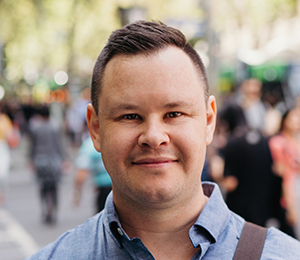Master of Mental Health Nursing
Course information for - 2025 entry
- Duration
- 1.5 years full-time or equivalent part-time
- Fees (first year)*
- Start dates
- ACU Term 1, ACU Term 3
- Commonwealth Supported Places are available for this course. See the course costs section below, under Fees.
- This course is available to international students not seeking to study on a Student Visa.
Overview
Expanding on units undertaken in the Graduate Certificate and Graduate Diploma, the Master of Mental Health Nursing aims to expand nursing clinicians’ knowledge and skills in mental health practice and leadership through evidence-based knowledge and practice. Students have the option to pursue a project stream or a research stream within this course. As such, they may complete either a project and two elective subjects, or complete a research dissertation in their final semester. The research stream has a PhD articulation pathway.
Both streams consolidate learning from the Graduate Certificate in Mental Health and Graduate Diploma in Mental Health in research, specialist clinical skills and knowledge as well as clinical leadership.
Current mental health postgraduate programs in Australia focus on either acute mental health care settings or generic mental health. ACU’s Master of Mental Health Nursing has been developed specifically for nursing clinicians entering into the specialist area of mental health. The course is targeted to new nursing graduates and to those working in mental health but who have no formal postgraduate mental health qualifications.
In the current period of mental health service provision reform, there has been a shift in focus from acute inpatient treatment to recovery-oriented practice, so the workforce requires professional development opportunities to keep pace with such changes.
Commonwealth Supported Places are available for this course. See the course costs section below, under Fees.
Burning Glass data shows there were 1,539 job postings in Australia between July 2021 and June 2022 for Registered Nurses (Mental Health) and of these 10.9% required a postgraduate qualification (Burning Glass Labour Insights, 19 July 2022).

Professional experience
Students entering this course must provide written confirmation that they are employed in a mental health service.
Professional recognition
This course meets the requirements of a postgraduate qualification for employment beyond entry level in mental health settings and for credentialing as a mental health nurse.
Accreditation
This course is currently accredited under the Australian College of Mental Health Nurses (ACMHN) National Framework for Postgraduate Mental Health Nursing Education.

Careers
Graduates will be able to apply their theoretical and practical learning in a range of mental health settings.
Examples of potential employment settings include:
- public and private health care organisations
- child and adolescent, adult and older person mental health services
- acute, community, rehabilitation and long term care focused settings
- local, state and commonwealth government policy
- consumer and carer groups
- mental health based research
Examples of potential employment roles include:
- clinician
- case manager/worker
- team leader
- service manager
- triage manager
- psychiatric consultation and liaison nurse
- nurse practitioner
Industry partnerships
ACU has existing partnerships and agreements with significant health services nationally. This includes (but not limited to) Catholic partners (e.g, St Vincent's mental health, St John of God), and other major tertiary hospitals (e.g., Royal Melbourne Hospital, Queensland Health, Local Health District NSW etc.). These partnerships are important for strengthening of the mental health nursing workforce which is under particular stress presently.
Course details
Course structure
To complete the Master of Mental Health Nursing, a student must complete 120 credit points (cp).
Course map
Graduate statement
AQF framework
Exit Points
A student who has completed the requirements for the Graduate Certificate in Mental Health Nursing or the Graduate Diploma in Mental Health Nursing may exit with the relevant award.
Additional course information
Current mental health postgraduate programs in Australia focus on either acute mental health care settings or generic mental health. ACU’s suite of Mental Health Nursing courses has been developed as a course specifically for mental health nurses entering into the specialist area of mental health nursing and aims to develop knowledge and skills at specialist and advanced levels for clinical practice in a wide range of mental health service settings including acute mental health care; aged mental health care; child and adolescent mental health care and; rehabilitation and community mental health care.
In the current period of mental health service provision reform, there has been a shift in focus from acute inpatient treatment to recovery-oriented practice, so the workforce requires professional development opportunities to keep pace with such changes.
The Mental Health Nursing programs at ACU provide opportunities for the nursing workforce, particularly those engaged in psychosocial rehabilitation and recovery focused services, to build the required knowledge, skills and competencies to respond effectively to consumers’ needs.
The course is targeted to new graduates of nursing courses and to those working in mental health nursing who have no formal postgraduate mental health qualifications. Nurses have a wide range of skills in psychosocial interventions, learned over considerable years of practice. The course will support the acquisition of evidence-based knowledge as a framework within which those skills may be utilised to achieve better outcomes for individuals who need to use mental health services and their family or carers.
Completion of the Graduate Diploma in Mental Health Nursing and Masters of Mental Health Nursing provides students will eligibility for the educational component of credentialling with the Australian College of Mental Health Nursing.
Applicants need to provide written confirmation from their employer that they are employed in a mental health setting.
Entry requirements
To be eligible for admission to the Master of Mental Health Nursing course, an applicant must :
a) have completed a Bachelor of Nursing degree (or higher); OR have completed the Graduate Diploma in Mental Health Nursing or the Graduate Certificate in Mental Health Nursing, or equivalent;
AND
b) provide written confirmation from their employer that they are employed in a mental health service.
An applicant must also comply with the Admission to Coursework Programs Policy.
Disclaimer: The course entry requirements above are for 2025 Admission.
Applicants with higher education study
An applicant must also comply with the Admission to Coursework Programs Policy.
To be eligible for admission to the course, an applicant must :
a. have completed a Bachelor of Nursing degree (or higher); OR have completed the Graduate Diploma in Mental Health Nursing or the Graduate Certificate in Mental Health Nursing or equivalent;
AND
b. provide written confirmation from their employer that they are employed in a mental health service.
You will need to meet the minimum entry requirements and subject prerequisites for your chosen course.
If you have completed at least two units of AQF-recognised study at bachelor level or above, we’ll assign you with a new selection rank that reflects your study level, duration, and grade point average.
If your prior study or relevant work experience has provided you with knowledge, skills or experience aligned with the learning outcomes of units in your new course, you may be eligible to gain credit for study or have your prior learning recognised. This means you may be able to complete your ACU course in a shorter timeframe.
You can use our credit search tool to see what you might be eligible for. For more information about credit and recognition of prior learning at ACU, follow the link below.
English language requirements
Applicants require an academic IELTS minimum overall score of 6.5 (with a minimum score of 6.0 in all bands), or an equivalent acceptable test score as outlined in the Admission to Coursework Programs Policy (see English Language Proficiency).
Articulation arrangements
Applicants who have completed an ACU Graduate Certificate in Mental Health Nursing, can articulate into a Graduate Diploma of Mental Health Nursing. Applicants who have completed an ACU Graduate Diploma of Mental Health Nursing can articulate into a Master of Mental Health Nursing.
Inherent requirement
There are essential components of a course or unit that demonstrate the capabilities, knowledge and skills to achieve the core learning outcomes of that course or unit. You will need to be able to meet these inherent requirements to complete your course.
Learn more about inherent requirements for your course and how they affect you
Pathways
Pathways into course for applicants with previous study and/or life experience
Usual university credit and RPL processes apply.
Further study
Students who complete the research pathway are eligible to undertake PhD studies upon application.
Fees
Course costs
*This is an indicative first-year fee based on the tuition fee rates for a full-time student, using unit enrolment data from domestic students who studied the course in the previous year.
A student’s annual fee will vary depending on factors including:
- Number of units studied per year
- Choice of major or specialisation
- Elective units
The University reviews fees annually.
You can view current course costs and domestic tuition fee rates by unit.
A 10% rebate on fees will be offered to domestic ACU graduates (from any faculty) enrolling in full fee-paying postgraduate studies in the Faculty of Health Sciences. Conditions apply.
Payment options
You should be able to concentrate on getting good marks instead of worrying about how you’ll pay your fees. We have a number of options that can help you ease the financial burden, including government assistance, scholarships and income support.
Scholarships
You could be eligible for one of the hundreds of scholarships we award each year to help students from across the university with the cost of studying, accommodation or overseas study opportunities. Some of our scholarships are awarded on the basis of merit, but these aren’t just for the academically gifted; ACU also recognises excellence in community engagement and leadership. We also offer a range of scholarships for those who may be struggling financially or who have faced other barriers to accessing education.
Apply for this course
ACU Online Applicants
Deferment
Deferment is available for one year. Students must meet employment at the point of commencing studies. Find out more about deferment.
Testimonial

“I enjoyed the small focussed study groups. All my lecturers remembered my name and I felt very much a part of the ACU university community.”

